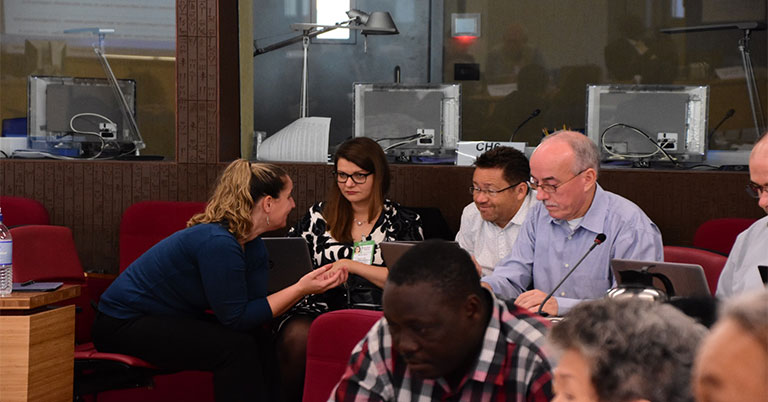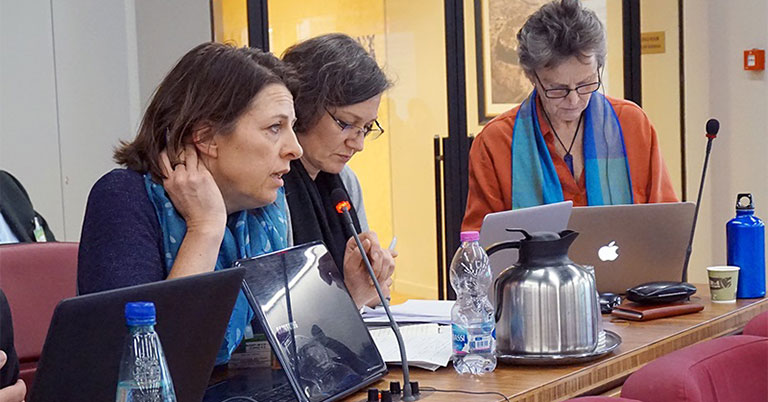Over the past two weeks of intensive talks on global regulation of a number of pesticides draw to a close in Rome, PANAP observer Dr Meriel Watts slams CropLife, Syngenta and the delegate from India for their repeated statements that they expected more poisonings from pesticides than those reported to the Committee.
They were all talking about lambda-cyhalothrin, the Syngenta insecticide that has poisoned many people in Africa, Europe, North America and Latin America. Two formulations of lambda-cyhalothrin, one of PAN terrible twenty pesticides that is toxic to children had been notified to the Rotterdam Convention’s Chemical Review Committee (CRC) by Georgia because of its high level of poisonings. That any pesticide company markets a product it expects to cause a high level of poisonings is unconscionable, and for any government to knowingly connive with that is completely unacceptable.

In the end, the CRC was not able to reach a unanimous decision on lambda-cyhalothrin and so it will not be listed under the convention – yet.
However, on a brighter note, the CRC did agree to forward to the next Conference of the Parties (COP) proposals to list the herbicide acetochlor and the highly toxic organophosphate insecticide phorate.
Acetochlor was banned by the European Union and by the 10 countries of the Sahelian region of Africa that jointly regulate their pesticides (Burkina Faso, Capo Verde, Chad, Gambia, Guinea-Bissau, Mali, Mauritania, Niger, Senegal and Togo). Reasons for the bans included potential for groundwater/drinking water contamination with a genotoxic metabolite, and risk to aquatic organisms and birds.
On phorate – the CRC had previously accepted a notification from Canada, and now only one from another region was needed for the chemical to progress to the COP for listing. This time it accepted the notification from Brazil.
Brazil banned phorate in 2015 because they found it to be of higher toxicity to humans than animals, an endocrine disruptor, neurotoxic, to have caused a number of poisonings in India, and because Brazilian farmers do not wear the personal protective equipment necessary for such a toxic pesticide.
Notification of bans on hexazinone and triazophos were not accepted by the CRC so fell by the wayside.
The POPs Review Committee (POPRC) of the Stockholm Convention agreed on the final stage of their deliberations on the organochlorine insecticide dicofol, manufactured by Hindustan Insecticides in India and Adama in Israel. The POPRC are recommending to the next Stockholm COP that dicofol be listed under Annex A of the Convention for a full global ban without any exemptions. AND that it be replaced by ecosystem-based approaches to pest management. That is a big step forward in the long road to replace all Highly Hazardous Pesticides with agroecology.








Discussion about this post